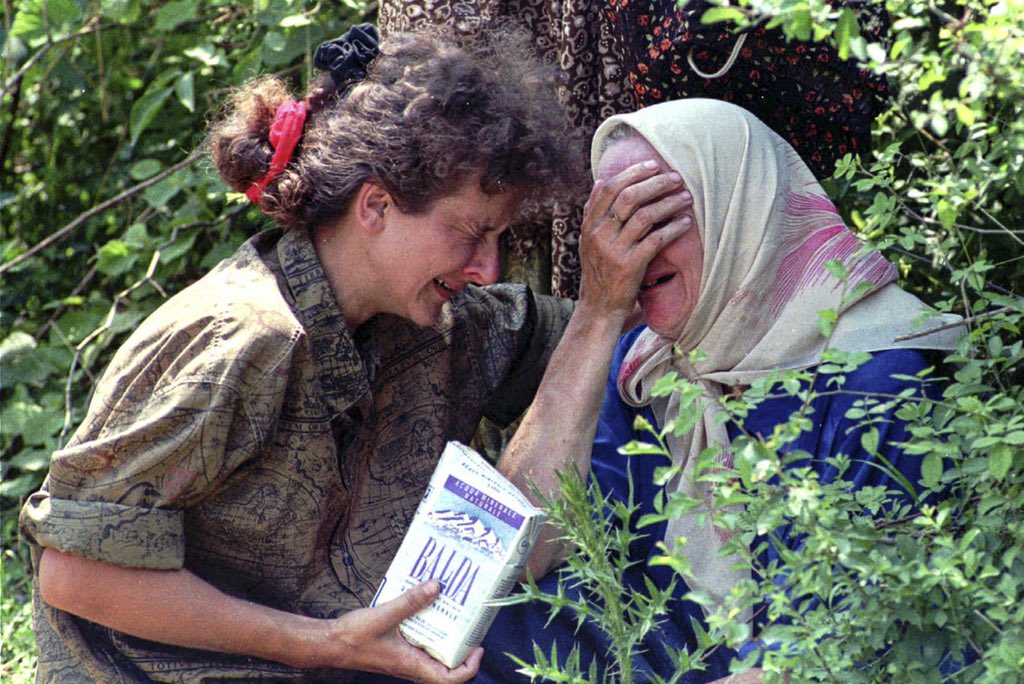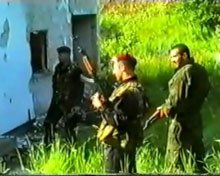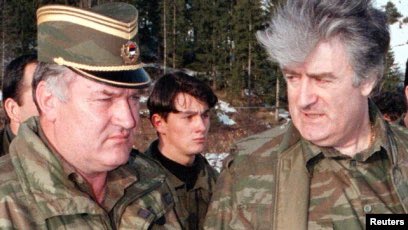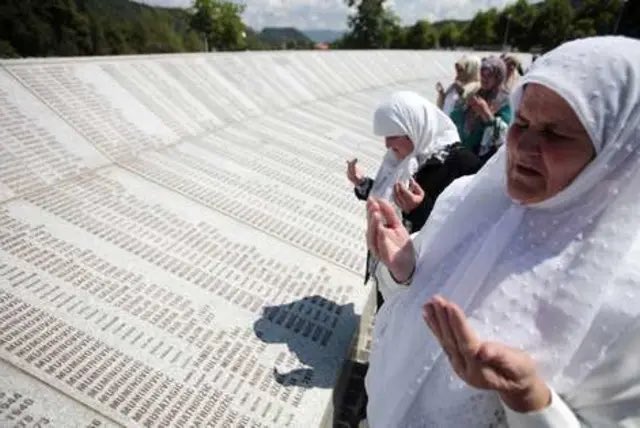On this day in 1995 , as Serb forces entered the UN safe area of Srebrenica, they proceeded to murder over 8,372 Bosniak-Muslims in the course of a few days.
Today we remember the innocent taken simply because of their ethnic and religious identity. We vow to never forget.
Today we remember the innocent taken simply because of their ethnic and religious identity. We vow to never forget.

Prior to the 11th, Ratko Mladic and Serb forces laid siege to Srebrenica. A UN protected safe area Srebrenica acted as a refuge for the thousands of Bosnian-Muslims who were forcibly displaced by Serb forces in Eastern Bosnia. 

Upon entry to Srebrenica, Serb forces split the men and women up. They expelled the women, but not before taking some of them away. Some women would then end up being raped and killed. Hundreds of Srebrenica's women still remain missing. 

As they forced Bosnian-Muslims out of their homes, they set out to capture and kill as many people as possible. Men as old as 90 and boys as young as 12 were victims of the brutal massacres and executions enacted by Serb forces. 

In some cases, they would tie the men up and lead them to a field where they would line them up and execute them. These crimes were not hidden as video evidence remains of Serb soldiers taking pleasure in the executions of Bosniaks. 

Over the course of a few days in July, over 8,000 Bosnian-Muslims would end up being murdered. This was the final act of a broader strategy of genocide and ethnic expulsion enacted by Serb leadership which began in 1992. 

The victims bodies were then buried in mass graves. Eventually in order to conceal their crimes, remains would be relocated in secondary and even tertiary mass graves. To date, hundreds of mass graves containing the remains of those killed have been found in Bosnia. 

As Judge Riad stated during the ICTY investigations and trial:
"These are truly scenes from hell, written on the darkest pages of humanity."
#BosnianGenocide #Srebrenica26
"These are truly scenes from hell, written on the darkest pages of humanity."
#BosnianGenocide #Srebrenica26

We remember because we cannot allow each other to forget the atrocity which occurred on European soil just 50 years after the Holocaust. We remember because Srebrenica teaches us the depth of man's inhumanity. We remember because we must learn from our collective past. 

Our promise is this:
We will continue to educate on the consequences of hatred. We will continue to educate on the Bosnian Genocide. Every day, in honour of those who were killed in the name of ethnonationalism, we will do our part to equip communities to stand up against hate.
We will continue to educate on the consequences of hatred. We will continue to educate on the Bosnian Genocide. Every day, in honour of those who were killed in the name of ethnonationalism, we will do our part to equip communities to stand up against hate.
• • •
Missing some Tweet in this thread? You can try to
force a refresh














